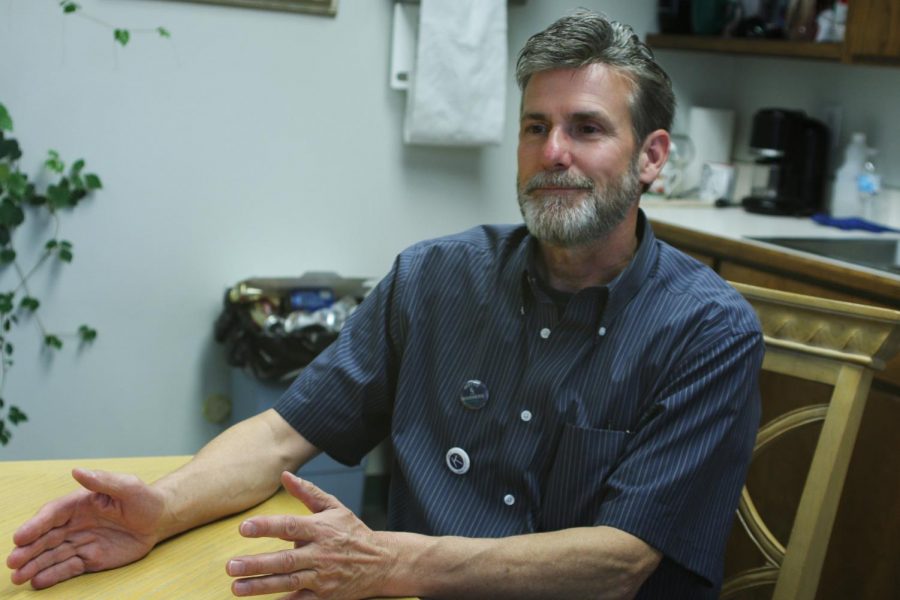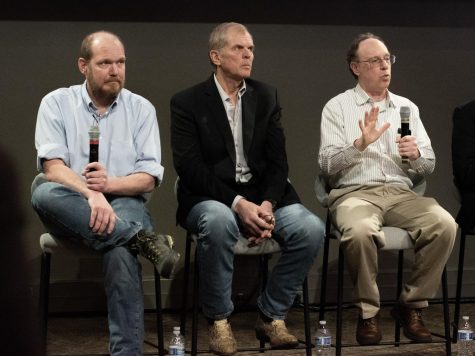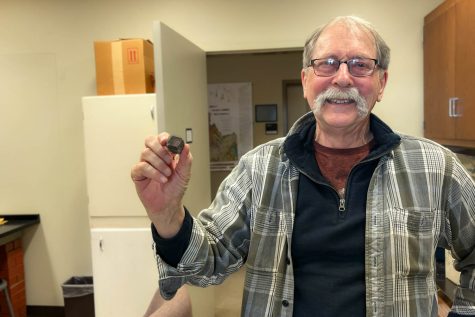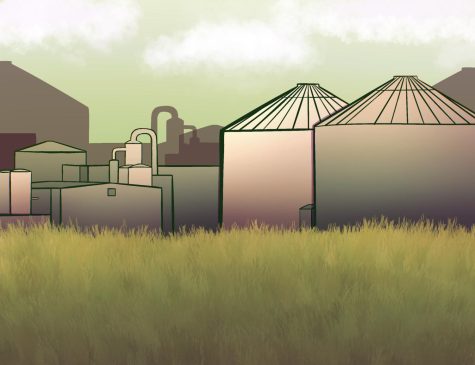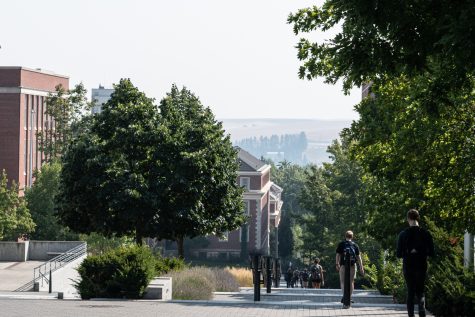New disposal surcharge to accommodate for higher recycling costs
Fee to cover increased processing costs due to new Chinese policy
JACQUI THOMASSON | THE DAILY EVERGREEN
Devon Felsted, president of Pullman Disposal Services, attributes the new commodity surcharge to the increase in recycling costs and lack of market thereof Tuesday afternoon inside the PDS office.
October 25, 2018
Starting Nov. 1, a $1.59 commodity surcharge will be added to the $5.31 monthly recycling costs for Pullman residents living in single-family homes.
For buildings that have dumpsters, the surcharge depends on the size of the dumpster. Larger dumpsters are presumed to have more recycling in them, which means the surcharge would be larger.
“The additional fee is just to cover the increased costs to process the recycling,” said Devon Felsted, Pullman Disposal Service president.
The need for a commodity surcharge stemmed from China’s National Sword program, when the country changed how it would take recycling from other countries toward the beginning of the year. China stopped taking recycling unless there was no contamination of garbage in it and refused to take some recyclables it had previously been taking.
The U.S. mills could not process all the recycling, so the recycling stockpiled, causing prices to drop last spring, Felsted said.
“It used to be recycling had value,” he said. “[The commodity surcharge] is a way that we pass that cost on to the customers, otherwise … we just couldn’t afford to keep [recycling].”
The recycling at Pullman Disposal Service is sent to Republic Services in Seattle. The cost of transportation and sorting is more than the price Republic Services gets for selling the recyclables, Felsted said. The commodity fee comes from this discrepancy in cost.
Every six months, the surcharge will be examined by the Washington Utilities and Transportation Commission, he said. If prices for recycling get better, there will be a reduction in the fee. If prices get worse, the surcharge will increase.
Felsted said he hopes the surcharge can be eliminated sometime in the future because that means recycling will have value again.
Another result from China’s changing attitude toward recycling is that Pullman Disposal Service is still trying to determine what it will and will not recycle. Until it fully determines what it does and does not want to recycle, it will not issue new stickers for recycling.
Currently, the stickers state that glass is recyclable when, in fact, glass is no longer recyclable.


